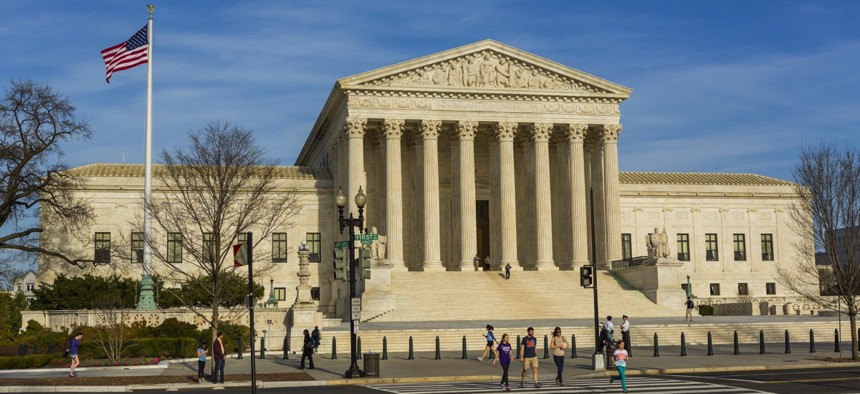Should the U.S. Supreme Court Provide More Protection to City Officials Making Discretionary Decisions?

Rob Crandall / Shutterstock.com

Connecting state and local government leaders
Municipalities could have a tougher time hiring top talent if the high court refuses to hear a case that will likely come down to the difference between “penalties” and “damages.”
The U.S. Supreme Court may hear a case determining how susceptible city officials are to federal lawsuits on the job.
The city of Miami’s former budget director, Michael Boudreaux, was sued by the Securities and Exchange Commission in 2013 on suspicion of purposely hiding the city’s dire financial straits in 2009.
In their appeal to the Supreme Court, Boudreaux’s lawyers argued he’s entitled to “qualified immunity” from the lawsuit because the SEC is seeking “monetary penalties,” but they assume those are the same as “monetary damages.”
“This Court has repeatedly described the qualified immunity defense as extending only to suits for money damages, and has done so in cases where damages were sought by private persons claiming that government officials had violated their constitutional or statutory rights,” reads the SEC response. “The Court has rejected the proposition that relief amounting to the ‘functional equivalent of monetary damages’ is necessarily subject to an immunity defense.”
Under qualified immunity, “government officials performing discretionary functions generally are shielded from liability for civil damages,” reads the brief, as long as no citizen’s rights were violated.
To win, Boudreax’s legal team would have to convince a majority of justices that monetary penalties and damages are one and the same, a notion the U.S. Court of Appeals for the 11th Circuit in Atlanta rejected because penalties go “beyond compensation” and are “intended to punish, and label defendants as wrongdoers.” Further, penalties go to the U.S. Treasury, unlike private damages.
Boudreaux stands accused of making false and misleading statements and omitting information about interfund transfers—masking a growing deficit while improving ratings on $153.5 million in bond offerings.
The U.S. District Court in Miami case is on hold until the appeals process is through, with Boudreaux’s attorneys stating in their own brief that no Supreme Court case has addressed use of the qualified immunity defense in monetary penalty cases, according to The Bond Buyer.
Cities may have trouble hiring top talent or convincing officials to make discretionary decisions if the defense isn’t allowed, The International Municipal Lawyers Association added in a friend of the court brief.
(Photo by Rob Crandall / Shutterstock.com)

NEXT STORY: Adult Dental Coverage Expanding Slowly in Medicaid





